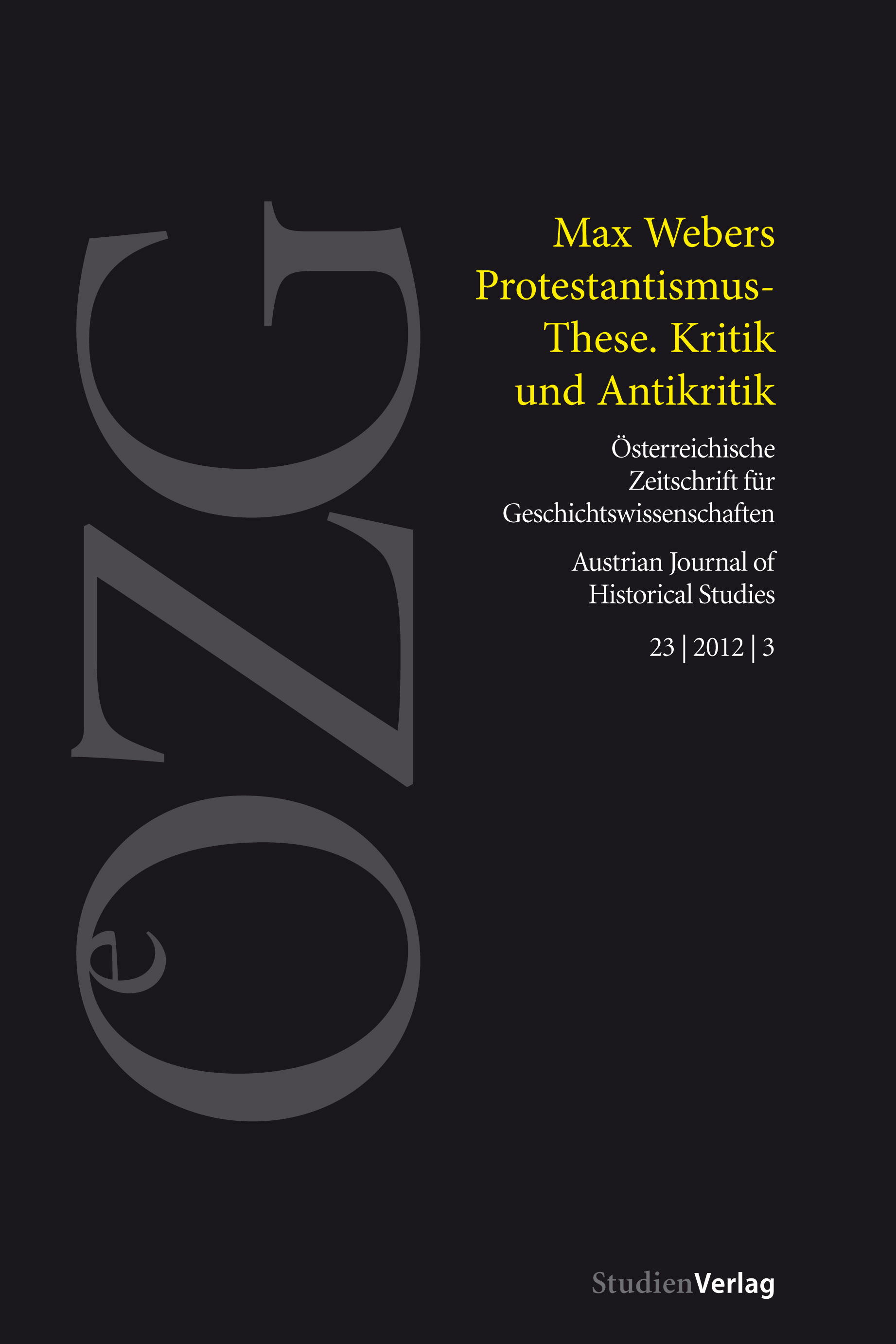Zu welchem Ende studiert man heute noch die „Protestantische Ethik“
DOI:
https://doi.org/10.25365/oezg-2012-23-3-5Schlagworte:
Philological tact, Usener-School of history of religion, ideal type, conceptual jurisprudence (Begriffsjurisprudenz), objective judgements of possibility (Kries), theological value judgementsAbstract
With reference to the Protestant Ethic by Max Weber it will be shown that Weber favoured an ambitious research program. In the first place, because he turned towards the research program in religious science proposed by the Usener school (under the heading of “philological tact”); next, because he came close to the then current explanatory model in the natural sciences of von Kries (Heidelberger), and responded in this way to the “challenge of the natural sciences” (Oexle). In line with F.W. Graf, attention will be drawn to the fact that Weber, due to his close reliance on Schneckenburger’s contrasting type-portraits of Lutheranism and Calvinism, harboured “implicit theological value-judgements” (Graf).


